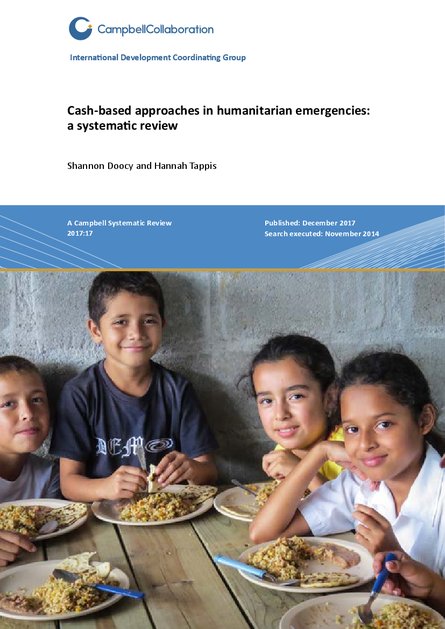
Cash-based approaches have become an increasingly common strategy for the provision of humanitarian assistance. Both cash-based approaches and in-kind food assistance can be effective means of increasing household food security among conflict-affected populations and maintaining household food security among food insecure and drought-affected populations. Cash transfers are more cost effective than vouchers which are more cost effective than in-kind food assistance.
This review assesses the effects of cash-based approaches on individual and household outcomes in humanitarian emergencies. It also assesses the efficiency of different cash-based approaches and identifies factors that hinder and facilitate programme implementation.
This Campbell systematic review examines the effectiveness, efficiency and implementation of cash transfers in humanitarian settings. The review summarises evidence from five studies of effects, 10 studies of efficiency and 108 studies of barriers and facilitators to implementation of cash-based humanitarian assistance.